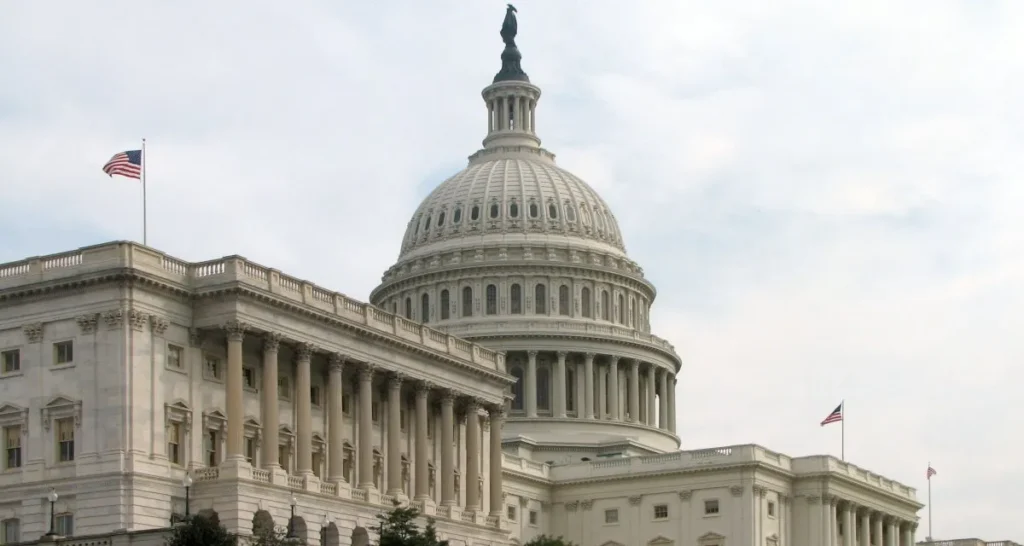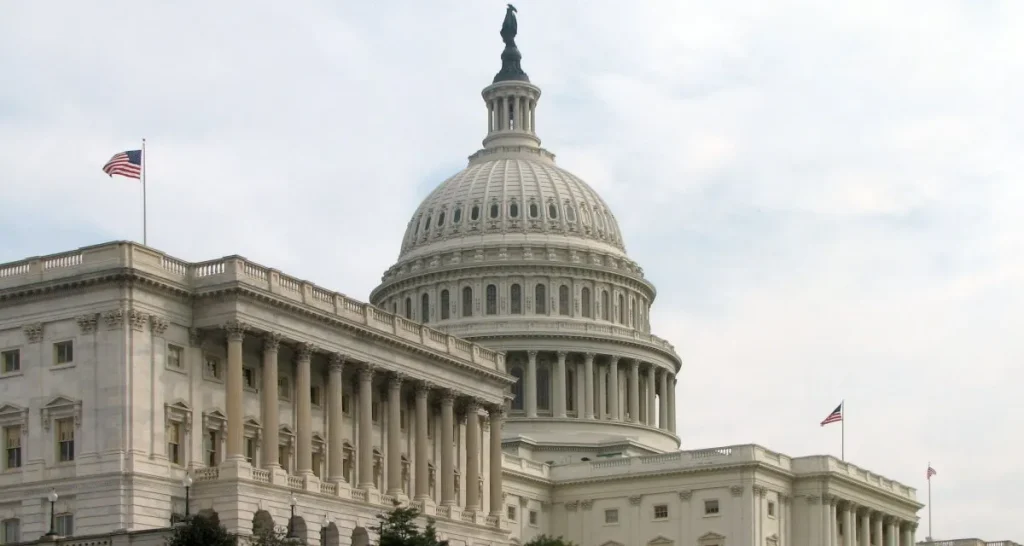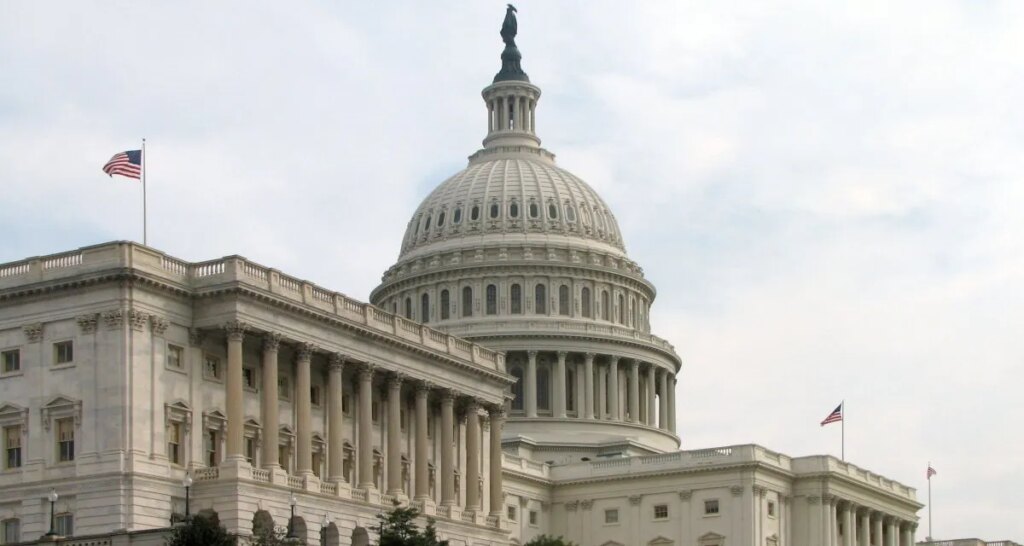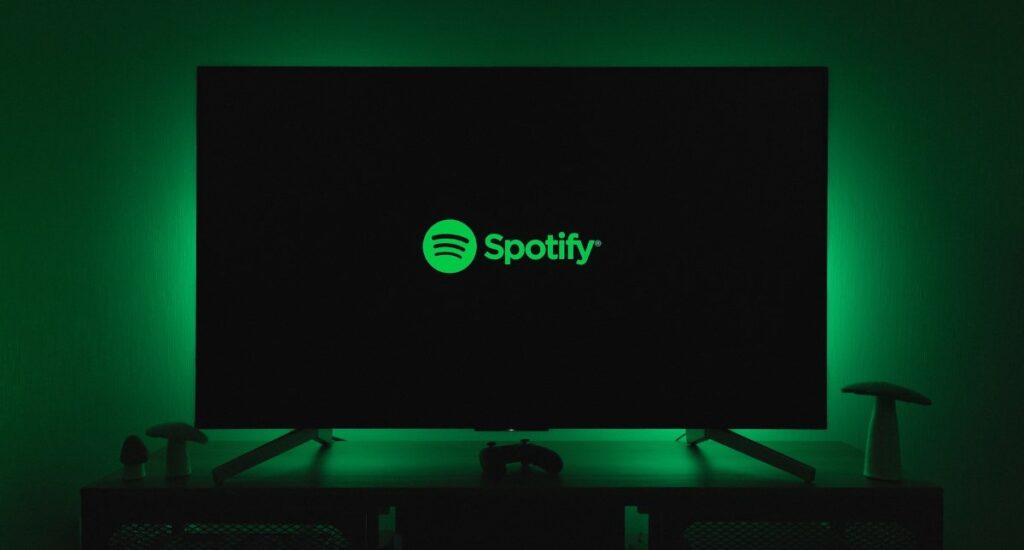Senators Introduce Bipartisan Bill Targeting Unauthorized Artificial Intelligence Training: ‘AI Companies Are Robbing the American People Blind’

Senators from both sides of the aisle have introduced the AI Accountability and Personal Data Protection Act, which would allow individuals to sue over the unauthorized use of their personal data and works in artificial intelligence training. Photo Credit: Scrumshus
Congressional pushback against gen AI giants is ramping up. Now, senators from both sides of the aisle have introduced a bill that they say will “hold Big Tech companies accountable for illegally pirating creators’ copyrighted works.”
That legislation, the AI Accountability and Personal Data Protection Act, comes from Senators Richard Blumenthal (D-CT) and Josh Hawley (R-MO). As we reported, the latter lawmaker earlier this month called out artificial intelligence companies for allegedly perpetrating the “largest intellectual property theft in American history.”
Evidently, there’s more to the clear-cut position than public criticism, and at least some other congressmembers are on the same page. Getting down to the 11-page bill, then, the senators settled on a far-reaching definition of “covered data” within the legislation.
Per the text, the comprehensive term refers to personal information, data, or different material, “regardless of form or format, that…identifies, relates to, describes, is capable of being associated with, or can reasonably be linked, directly or indirectly, with a specific individual.”
This seemingly encompasses NIL rights and a whole lot else. Likewise falling under the “covered data” umbrella are any third-party creations “derived, inferred, or generated from [the] information described” above.
Rounding things out, the term extends as well to copyright-protected works “generated by an individual…regardless of whether the copyright has been registered” with the USCO.
Keeping all that in mind, the law would allow anyone whose covered data has been utilized without express authorization – “utilized” including being collected, processed, sold, or “otherwise exploited” – to bring civil litigation against “any person” responsible.
Besides the responsible persons themselves, legal actions under the proposed law could target those who allegedly “aided and abetted” the covered-data violations, which could result in financial penalties and/or injunctive relief.
Covering multiple bases, the legislation also lays out “invalid” forms of consent to use covered data – from the obvious (approval obtained by means of “coercion or deception”) to the subtle (“as a condition of using a product or service”).
Furthermore, the bill would preclude arbitration clauses or any contracts from preventing litigation, including class actions. A “predispute arbitration agreement or predispute joint-action waiver shall not be valid or enforceable with respect to any claim,” one relevant section states.
Put differently, it’s safe to assume that gen AI developers aren’t big fans of the legislation. And it’ll be worth tracking the bill’s progress from here.
On one hand, the Senate overwhelmingly opted to block a 10-year moratorium on state-level AI regulations. On the other hand, the RIAA-backed No Fakes Act only started to pick up real legislative momentum after undergoing an overhaul and adding Big Tech players themselves as proponents.
Already, though, music industry organizations are publicly voicing support for the bill. After this piece was published, the Nashville Songwriters Association International reached out with a statement backing the legislation.
“Since the dawn of generative AI, The Nashville Songwriters Association International (NSAI) has maintained that Artificial Intelligence companies have no right to use a creator’s works to train their software without permission and payment,” said NSAI executive director Bart Herbison.
“We adopted a 4-Ps policy regarding generative AI – Permission, Payment, Proof and Penalties. The AI Accountability and Personal Data Protection Act, introduced in the U.S. Senate this week, echoes those principles and would grant parties a right to sue for the ‘exploitation of individuals’ data without express, prior consent,’ including copyrighted material, and provides for monetary penalties and injunctive relief.
“We are incredibly grateful to Senators Hawley and Blumenthal for their leadership and fortitude to stand up for songwriters and all creators against the theft of our copyrights and we look forward to supporting the eventual passage of this bill,” concluded Herbison.
Link to the source article – https://www.digitalmusicnews.com/2025/07/23/ai-accountability-and-personal-data-protection-act/
-
Banjo 5-String 26 Inch Tenor Banjo, Lotkey Mini Closed Sapele Back Banjo for Professional Beginners with Extra Strings Strap Pick-up Picks Tuner Bag$109,99 Buy product
-
ADM Concert Ukulele for Beginners 23 Inch Hawaiian Mahogany Wood Ukelele Kit for Kids Adult Student Starter Ukalalee Set Pack Bundle with Free Lesson Gig Bag Strap Nylon String Tuner Pick, Grey-Blue$69,99 Buy product
-
LP-6 V2 6.5″ Project Lone Pine Powered Studio Monitor – Black$199,00 Buy product
-
Fesley Electric Drum Set, Electronic Drum Set for Beginner Kids with 4 Mesh Drum Pads, 2 Switch Pedal, Light and Solid Electric Drums with 165 Sounds, USB MIDI, Throne, Headphones, Sticks, Black$309,99 Buy product
-
Civil Era Solid Copper Bugle With Beautiful Rope US Military Cavalry Horn Handmade$59,00 Buy product
-
Squier by Fender Mini Precision Short Scale Bass Guitar with 2-Year Warranty, Laurel Fingerboard, Sealed Die-Cast Tuning Machines, and Split Single-Coil Pickup, Maple Neck, Black$199,99 Buy product












Responses